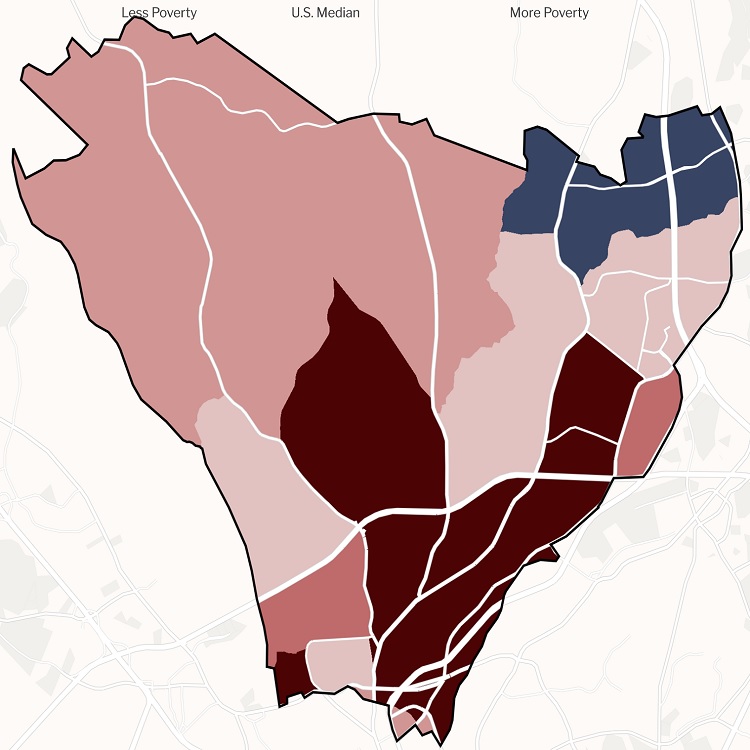ProPublica won multiple awards two years ago for “The Black American Amputation Epidemic,” a long-form article detailing the disproportionately high rate of limb loss among Black Americans in the South. Last month The State (a newspaper in Columbia, South Carolina) focused on the alarming prevalence of diabetes-related limb loss in a single Black neighborhood. Its interactive article, “Cut Off,” tells the story through a mélange of narrative, images, maps, infographics, and other elements.
“One SC zip code is a hot spot for diabetic amputations,” the article begins. “There, residents are cut off from basic services that might help save their limbs and lives.” The zip code in question, 29203, registers one amputation per thousand residents—the highest rate of any Southern zip code over a five-year period (2016-2020), and 20 times higher than the national average.
The drivers behind this unfortunate trend are no mystery. As The State, documents, residents in 29203 lack access to basic health services, fresh food, recreation facilities, and public health programming. The same combination of poor nutrition, limited health care, and inadequate social services affects people in low-income communities across the country, driving up rates of diabetes and limb loss among people of every racial background. These disparities are a challenge for all Americans, not just Black Americans—but statistically speaking, Black communities’ elevated rates of diabetes-related limb loss seem inextricably linked to their elevated rates of impoverishment.
As one health official says, the solution requires a whole-society effort. “You have to involve the clergy, the neighborhood associations and certainly the schools” in addition to hospitals and public health programs, this individual says. “It’s not one entity; it’s all these entities working together to bring about a difference in the community.”
“Cut Off” has plenty to offer for readers of every racial background. Read the whole article at The State.
